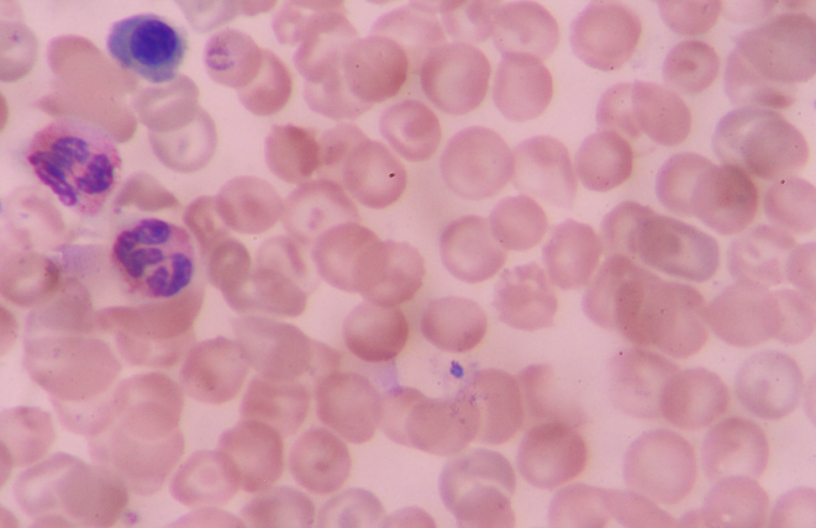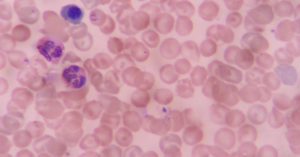In the heart of South Asia, where vibrant cultures and diverse landscapes intertwine, a silent but formidable health challenge is making its presence felt with increasing urgency. Pakistan, a nation known for its rich history and resilient people, is now grappling with a concerning and escalating issue: the rising cases of thalassemia. As the nation stands at a verge of modernity and tradition, this blood disorder has quietly woven its threads into the fabric of society, demanding attention and action. Join us as we delve into the depths of this growing concern, exploring the factors, impact, and potential solutions surrounding the surge of thalassemia in Pakistan.
Navigating the Rising Tide of Thalassemia in Pakistan
In the colorful tapestry of Pakistan, an unseen challenge is sperading drastically. Thalassemia, a lesser-known yet significant genetic blood disorder, is on the rise in the country. This ailment, which affects the production of crucial hemoglobin, is gradually casting its shadow over families and communities, demanding attention and action.
Unraveling the Thalassemia Enigma
Thalassemia is like a genetic puzzle that disrupts the body’s ability to create healthy red blood cells, which are responsible for carrying oxygen. What makes it even trickier is its ability to hide within family trees for generations before showing its true colors. This delayed revelation can catch families unaware and unprepared for the challenges that follow.
Genes at Play: A Closer Look at the Genetic Factor
The surge of thalassemia in Pakistan is partly due to the country’s unique genetic makeup. The practice of marrying close relatives, like cousins, which is common in many parts of Pakistan, unwittingly increases the chances of passing on the thalassemia gene. It’s like a hidden time bomb that ticks through the generations.
Strain on the Health System: Diagnosis, Treatment, and Support
As thalassemia cases increase, Pakistan’s healthcare system feels the strain. Properly diagnosing the disorder, providing specialized treatment, and offering ongoing care become tougher with the rising numbers. Lack of awareness compounds the issue, leading to delays in getting the right treatment and care.
Raising the Curtain: Spreading Knowledge and Awareness
Taking on thalassemia requires a united effort to spread awareness and knowledge. Schools, community centers, and the media can play a big role in sharing information about the disorder, its signs, and how to prevent it. When people are informed, they can make better choices for their families.
Hope on the Horizon: Prenatal Testing and Counseling
There’s a glimmer of hope in the form of prenatal testing and genetic counseling. By identifying the thalassemia gene in parents-to-be, doctors can guide them to make informed decisions about starting a family. This way, they can prevent passing on the disorder to their children.
Joining Hands for Change: Government and Community Initiatives
The fight against thalassemia isn’t a battle for the healthcare sector alone. Government agencies, organizations, and everyday people are teaming up to combat the disorder. Initiatives such as free or affordable genetic testing, treatment centers, and support groups are vital steps toward reducing the impact of thalassemia on families and the country.
Charting a New Course: A Future Free from Thalassemia
As the sun sets on Pakistan’s horizons, the country stands at a crucial crossroads. The rising thalassemia challenge can either cast a long shadow or pave the way for change. By embracing education, spreading awareness, and working together, Pakistan can light the path toward a future where thalassemia is no longer a hidden enemy, and families can look forward to healthier generations ahead.
Aleem Dar Foundation: Addressing Thalassemia Challenges
As Pakistan faces an alarming surge in thalassemia cases, the Aleem Dar Foundation, under the guidance of cricket umpire Aleem Dar, emerges as a proactive force. The foundation’s commitment to aiding underserved populations resonates with the urgent requirement to tackle the escalating thalassemia prevalence.
Final Verdict
Even though thalassemia is a tough challenge, Pakistan has a chance to make things better. By learning about it, talking about it, and working together, the country can create a healthier future where thalassemia doesn’t have to be a hidden problem anymore.
Doctors are having a hard time diagnosing and treating thalassemia because there are many cases now. Not many people know about it, which makes things even more difficult. But there’s hope. Schools and the media can help teach people about thalassemia. Doctors can also help parents know if their baby might have thalassemia before it’s born. The government and other groups are working together to fight thalassemia. They are making it easier for people to get tested and treated. They are also offering support to families dealing with thalassemia.



